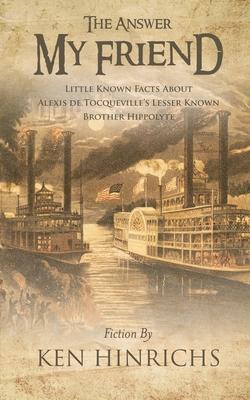Arriving from France in the Spring of 1831 on a mission to learn about America and its unique new government, a young Alexis de Tocqueville, future world-renowned writer and philosopher, found many things to excite and inspire him in the country's third largest city, New Orleans.
Secretly accompanying Tocqueville to America was his brother, Hippolyte. In December of 1831, the two were accidentally separated, never to see each other again. Alexis returned to France and fame as a world-renowned social commentator. Hippolyte stayed on in America and accomplished even more in his own way.
Maturation moments were plentiful during the country's drive to become if not just a world power, a world innovator and leader. Her citizens focused on doing the same old things, but doing them better and more efficiently, risking the unknown and changing the world.
This is Hippolyte's story. It is that of Abraham Lincoln, the birth of Steam-boating, and a pirate who helped win the War of 1812. It is also the story of a slave named Tom Armstrong, and of common people who drove the birth of technology and freedom. It is a story of America's Civil War, and of Longfellow, Louisiana, Huey Long, and a love affair so intense it is described in one of America's most famous pieces of classic literature.
